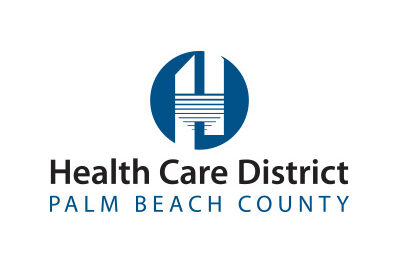 Health care providers who are participating in group practices need to understand how critical it is for the group practice to have a buy/sell agreement in place. A buy/sell agreement is a contract that restricts the owners of businesses with multi-owners from selling or transferring their ownership interests freely (including interests in C corporations, S corporations, partnerships and LLCs). These agreements are designed to dictate what happens upon the occurrence of unexpected events, such as death, retirement, disability or discord between the owners of a business.
Health care providers who are participating in group practices need to understand how critical it is for the group practice to have a buy/sell agreement in place. A buy/sell agreement is a contract that restricts the owners of businesses with multi-owners from selling or transferring their ownership interests freely (including interests in C corporations, S corporations, partnerships and LLCs). These agreements are designed to dictate what happens upon the occurrence of unexpected events, such as death, retirement, disability or discord between the owners of a business.
A good way to illustrate the importance of buy/sell agreements is to use hypothetical examples of the types of events and related issues that are typically encountered by multi-owned businesses. Armed with some information this article may help raise awareness as to important questions that members of a group practice should consider. We recommend that health care providers with interests in group practices seek the professional advice of their attorneys, accountants and other professional financial planners.
Assume Dr. J, an oncologist, joins an oncology group practice by buying a 10 percent interest (for $100,000) in the group practice (“the Practice”). Assume further that after he joins the group, there are a total of 10 owners, and the Practice operates as an S corporation. As long as the 10 oncologist owners are healthy and committed to meeting their required work hours, and the Practice and the individual owners are earning the money they expected to make, all members of the Practice should be relatively happy with the arrangement.
It is inevitable, however, that some triggering event will occur affecting an owner (and his family) of the Practice and the Practice itself. This is where a well-drafted buy/sell agreement helps mitigate any potential disruption and/or adverse economic impact to all parties involved.
For example, what happens if, after Dr. J has been with the Practice several years (and the value of the Practice increases substantially), he tragically passes away. Without a buy/sell agreement in place, the remaining nine owners would be left to deal with Dr. Js spouse/family (“the heirs”), as they would suddenly have a financial interest in the Practice.
Assuming that the Practice does not have a buy/sell agreement, Dr. Js heirs would have the right to sell his 10 percent interest to any third-party. If such third-party happened to be a buyer that is not eligible to be a stockholder in an S corporation (such as a multi-member LLC or a non-resident alien), any such sale would cause the Practice to lose its status as an S corporation for federal income tax purposes, which is a very undesirable event.
More importantly, besides the Practice potentially losing its S corporation status, the remaining nine owners would be “stuck with” having new partners who may not be desirable.
Even if one or more of the remaining nine owners, or the Practice itself, were interested in purchasing Dr. Js 10 percent interest from his heirs, the question that would arise is what should the price be? The heirs could potentially be suspicious of any price offered by the Practice or its owners, causing disruption or, in the extreme, litigation.
If a buy/sell agreement were in place in the above example, not only could the issue of allowing sales to outside parties be eliminated (with language stipulating that only existing owners of the Practice, or the Practice itself, can buy the interest), but also the value for any such interest could be established and agreed upon prior to a triggering event. The funding for any purchase obligation related to a triggering event could also be addressed, so as to not place a huge cash flow obligation on the remaining owners. Life insurance is the most common means of funding buy/sell purchase obligations. But who should own the life insurance policies – the individual owners of the Practice, or the Practice itself? You should ask your professional advisor for guidance in this area of buy/sell agreement planning.
The hypothetical example above is only one type of triggering event (i.e., death). There are many other situations (i.e., divorce or bankruptcy of an owner, retirement of an owner, underperformance, shareholder disputes, disability, etc.) where a group practice, or its owners, is affected by an unexpected event.
It is imperative that buy/sell agreements are planned and drafted by skilled professionals who are well versed in the mechanics and implementation of such concepts. There are also many income and estate tax implications to consider when drafting such documents, as well as insurance planning and negotiating between owners of the group practice (on issues such as the value of the practice and pay-out terms, to name a few). Importantly, buy/sell agreements need to be monitored and updated periodically for changes in the financial position of the Practice.
When it comes to considering the importance of buy/sell agreements, the words of Ben Franklin seem most appropriate: “An ounce of prevention is worth a pound of cure.”
Post Views: 872
 Health care providers who are participating in group practices need to understand how critical it is for the group practice to have a buy/sell agreement in place. A buy/sell agreement is a contract that restricts the owners of businesses with multi-owners from selling or transferring their ownership interests freely (including interests in C corporations, S corporations, partnerships and LLCs). These agreements are designed to dictate what happens upon the occurrence of unexpected events, such as death, retirement, disability or discord between the owners of a business.
Health care providers who are participating in group practices need to understand how critical it is for the group practice to have a buy/sell agreement in place. A buy/sell agreement is a contract that restricts the owners of businesses with multi-owners from selling or transferring their ownership interests freely (including interests in C corporations, S corporations, partnerships and LLCs). These agreements are designed to dictate what happens upon the occurrence of unexpected events, such as death, retirement, disability or discord between the owners of a business. 


























